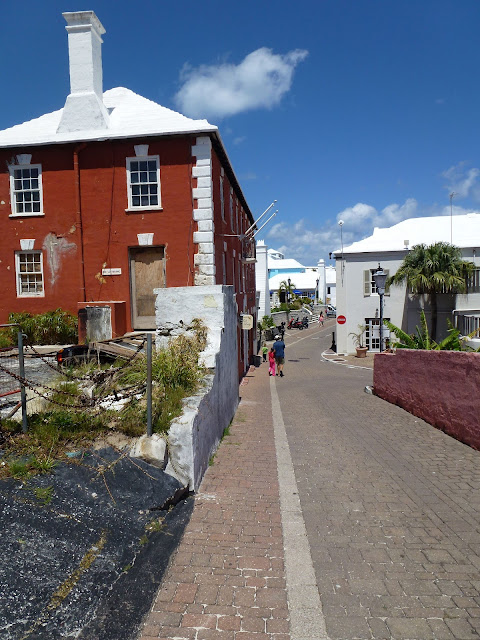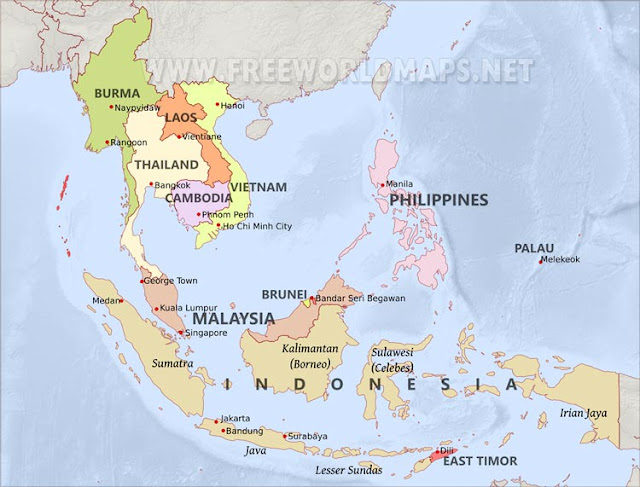How Bermuda Saved America...
Seriously! Did you know that one of the ships that was sailing to the "New World" from England shipwrecked on the reefs of Bermuda and survived?? The crew of the Sea Venture were separated from the other ships that were headed to what would become Jamestown by a horrible storm and ended up literally crashing in to Bermuda. The name comes from the first visitor to the island in 1505, Juan de Bermudez, from Spain. Legend tells us that he and his crew were too scared of the "isle of devils" to hang around long. The calls of the cahow bird that they heard sounded to them like evil spirits, and they got the heck out of dodge. Likely, they also heard the whistling frogs that make quite the chorus when dark comes. Check out a youtube video here.
The same birds that scared away the Spaniards, became good
eatin’ for the English of the Sea Venture. They also feasted upon sea turtles, fish, and
wild hogs that the Spaniards had left behind.
The crew built wooden barrels to catch precious rainwater, which is
still the only source of fresh water on Bermuda. Now, though, they use specially designed roof
systems to catch and store rain in cisterns below their homes. The locals have been thrilled to have all the
recent rain, but the tourists – not so thrilled.
On the Deliverance
replica, we learned about how each section of the boat was used, and what life
was like aboard. An animatronic figure
of William Stachey, a writer aboard the Sea
Venture and later the Deliverance, told
of the passage and arrival to Jamestown.
Michael was not so sure what to think of this robotic man. He stared silently, and then later he started
asking lots of questions. “Mom, was that
guy real or dead? If he is dead, how
could he talk? Why isn’t he a
skeleton? How did they make his eyeballs
move?” You could just see his little
wheels a-turnin’…
We have been lucky enough, to be anchored right next to the
town of St. George, which was the first capital, before it was moved over to
Hamilton. St. George is a quaint little
town, with a nice town square surrounded by the same street layout of years
past. One local we talked to boasted of
the old, narrow “one-horse-cart” streets that still make up many of the roads
around St. George. Also in the square,
we tried out the gallows and watched a reenactment of a dunking of the town
gossip! They were enthralled!
Many of the historical buildings have been preserved
and/or restored. We visited the St.
Peter’s Church, which is the oldest church on the island. It still has a communion table dating back to
the 1600’s. It also houses the
segregated graveyards from the days of slavery in Bermuda.
Another building we toured was a home that dated back to the
1700’s, one of the first homes constructed using the locally quarried
limestone. It had many antique items, that
the kids had never seen before including a chamber pot, a bedwarmer, and a wash
basin. Downstairs, the historical
society had set up a printing press. It
seems that at that time, many of the homeowners housed their businesses in
their basements. The kids got to help
print a page using a replica of the Gutenberg printing press, and also learned
about typewriters. Yep, they had never
seen or touched one of those antique machines before!! What a long way media has come, but it all
started from the invention of that printing press.
Up the road a bit, we found a well-kept park where Sir
George Somers’ heart is supposed to have been buried. The park is lined with beautiful flower
gardens and palm trees. When we arrived,
we saw an elderly couple all dressed up in their Sunday best, sitting on a
bench, enjoying the view. They were
quite sweet, and I just had to try to
snap a photo. Sundays here are still
very much reserved as a day of rest. Few
stores and restaurants are open, and the town is quiet. It is a weekly reminder to stop and reflect. Also in this park, we saw a moongate that has become a symbol of
Bermuda. You see them all over the
island, and legend says if you pause under the huge limestone gates, you will
have luck and happiness. Honeymooners
who come here, take a moment to pause, promising a happy marriage. Who
could pass up the chance for a bit of luck and happiness, right?
On another day, we took a ferry ride over to another part of
Bermuda, the Royal Navy Dockyard. This
naval fortress was built in order to protect Bermuda from being overtaken by
the French (under Napoleon), and the Americans.
It is now the location of the Bermuda Maritime Museum, with many
historical exhibits. Interestingly,
there were goats grazing on the upper level of the fort, to keep the grass
short, I suppose! Under the fort, was
the underground storage for
gunpowder. Along the outer wall of the
storage room, was a very narrow “lamp lighting passage” where the candles were
set behind panes of glass so that there would be no accidental explosions. The kids loved this narrow little passage,
except when Mark turned out the lights and they were left in complete darkness!
Terrified screams ensued! Mark got a
good laugh, and I was reminded of similar tricks my dad used to play on us,
always trying to give us a scare!
As I rush to type this, the crew is up on deck getting everything tucked away and ready to head to Newport!! It will be our first longer passage with the whole family aboard! Please pray for our safety, sleep, and sanity!! Until then...





















Very beautiful pictures :)
ReplyDelete